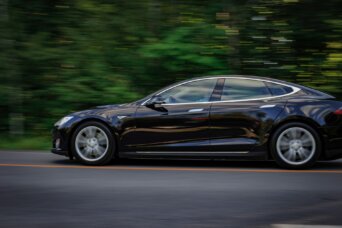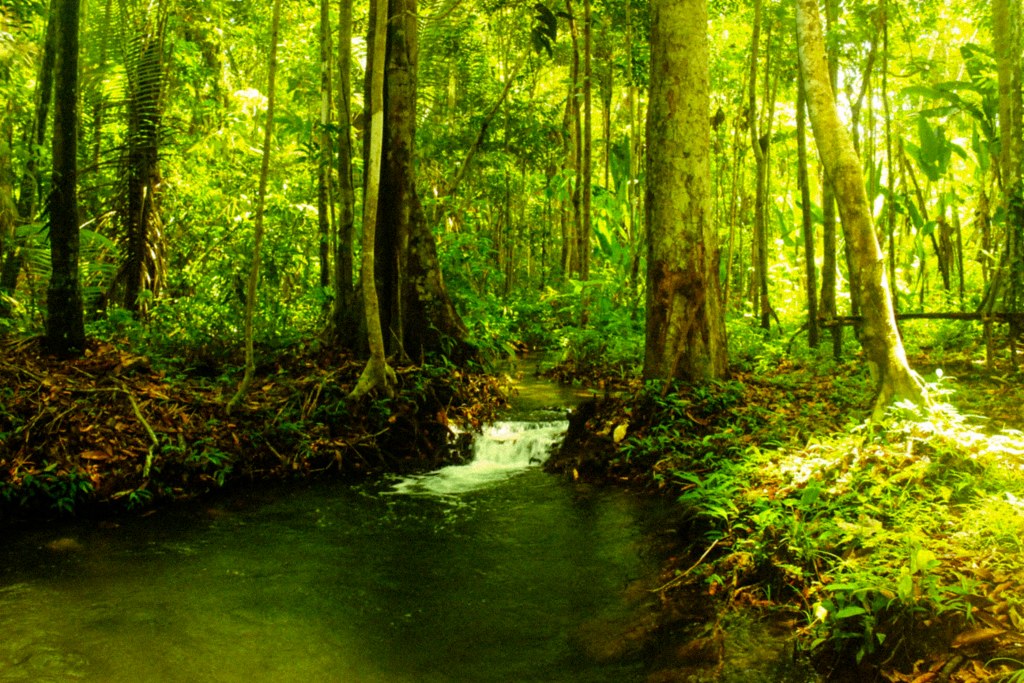- About
- Topics
- Picks
- Audio
- Story
- In-Depth
- Opinion
- News
- Donate
- Signup for our newsletterOur Editors' Best Picks.Send
Read, Debate: Engage.
| topic: | Sustainable Development |
|---|---|
| located: | Germany |
| editor: | Abby Klinkenberg |
The same week that the Tesla Motors’ headquarters made waves in the US by announcing its imminent move from California to Texas, on the other side of the Atlantic the company’s notorious and eccentric CEO, Elon Musk, hosted what appeared to be a local Oktoberfest festival in the small town of Grünheide, Germany. Of course, Musk did not deign to visit the town of 9,000 residents without cause: he was on a crusade to win over the hearts and minds of local residents (and hype up his fans in the Berlin tech-scene) who will share their municipality with Tesla’s first European factory - whether they like it or not.
Despite the objections of environmentalists, automotive unions and sticklers for Germany’s stringent regulatory bureaucracy, Tesla’s ‘gigafactory’ - explained by Musk as “the machine that builds the machines” - is poised to begin producing its Model Y vehicles before the end of 2021. Plans for the factory were first shared in late 2019 as part of a $6.8 billion investment in the three-hundred hectare site just outside of Berlin and forty-five minutes from the Polish border.
The German government has pandered to Tesla from the start, offering pre-approvals for the company to begin construction on the site in an extremely unusual disregard of its beloved bureaucracy (which was the object of a scathing letter penned by Musk in April 2021).
Although originally slated to open in July 2021, environmental concerns have delayed the factory’s inauguration as local residents have taken issue with Tesla’s choice of their municipality for the project. Over the past two years, the Brandenburg factory has been relentlessly and justifiably attacked on the grounds of its habitat destruction for local species of snakes, lizards, and bats.
Recently, issues of water consumption and potential defilement of drinking water reserves have come to the fore. Grünheide (which is an amalgamation of the German words for “green” and “health”) is located in an area designated for protected drinking water and those against Tesla’s entry into the municipality are concerned that the German government is allowing the company to violate the EU’s Water Framework Directive. After collecting over 800 objections during a consultation period with local residents, the factory’s final approval now rests in the hands of Germany’s Environment Ministry.
Tesla frames the Brandenburg factory’s presence in the region in terms of Germany’s urgent political struggle to achieve its ambitious climate goal of becoming carbon-neutral by 2045 (if not sooner). If Germany is to follow through with its target, the production of electric vehicles is necessarily part of the future given that the automotive industry is among the country’s strongest sectors and remains a particular point of pride in German culture.
Tesla’s advances are coming at a tense political moment in the country. While coalition talks to form the next German government are ongoing, it looks like the Green Party will have a share of power: among their proposed policies is one that would place a ban on the sale of vehicles with combustion engines by 2030, forcing the industry to accelerate its move away from fossil fuels. While its environmental credentials are flimsy, Tesla’s electric vehicles align with this vision of the industry’s future and exerts additional pressure on the industry’s major players: Volkswagen, Daimler, and BMW. Tesla aims to produce around 10,000 vehicles per week by the end of 2022, providing around half-a-million electric vehicles to the European market (over twice Germany’s total electric vehicle sales in 2020).
Another dimension of Tesla’s entry into the German automarket is that of organised labour, with which Musk has had a publicly tumultuous relationship. The factory will supposedly create 12,000 new jobs, which Tesla is having a hard time filling. German labour laws are strongly tilted in favor of employees and the automotive industry is no exception. It has been reported that the Brandenburg factory will be offering salaries 20 percent under the collectively-bargained wage standards earned by German auto-industry unions. Tesla’s approach of offering stock options and bonuses rather than predetermined holiday pay threatens the tradition of strong labour in the country.
The German government’s accommodation of Tesla’s demands thus far indicates that their contribution to the erosion of German labour will also be overlooked in view of the company’s high-profile and potential contribution to carbon-emission goals. Naturally, the free-market approach to fighting climate change is appealing to political leaders seeking to pay attention to both GDP and CO2.
On 14 October, the residents’ consultation process concluded and deliberations on the environmental legitimacy of the Brandenburg factory began. If the German Environmental Ministry rejects Tesla’s factory as an environmental hazard, the company will have to dismantle its nearly-finished construction on its own dime. Fortunately for Tesla, its approval is all but inevitable: all major parties are in favour of the site, even the Green Party. It remains to be seen what consequences will emerge from the factory in terms of the environment and organised labour. Musk has already revealed the company’s plans to build an $8 billion battery plant next to the factory.
Photo by Jp Valery

